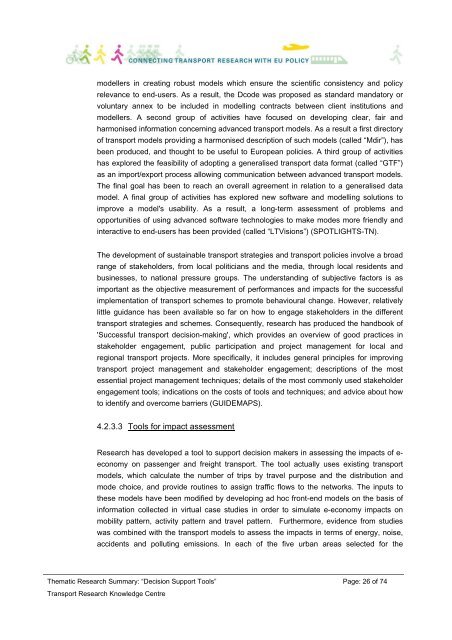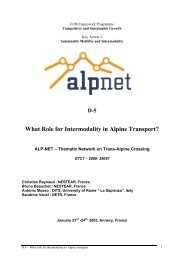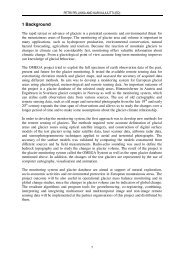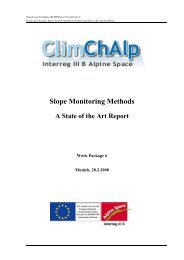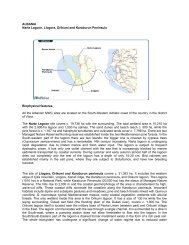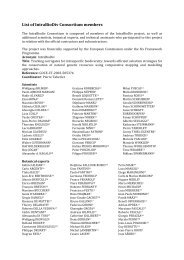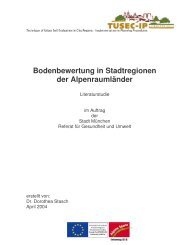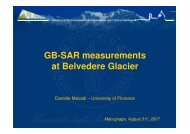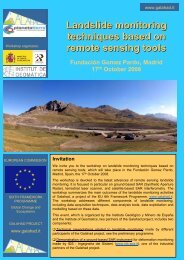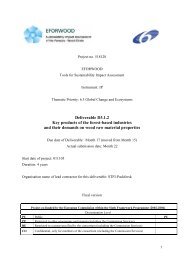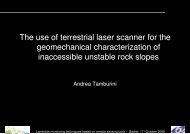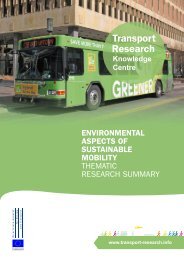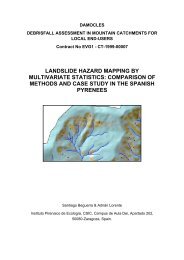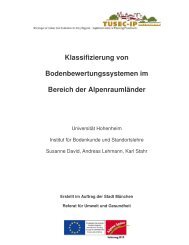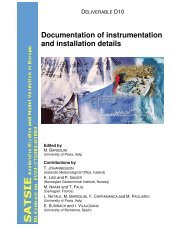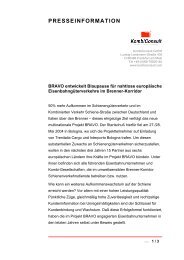Decision Support Tools - Thematic Research Summary - Transport ...
Decision Support Tools - Thematic Research Summary - Transport ...
Decision Support Tools - Thematic Research Summary - Transport ...
You also want an ePaper? Increase the reach of your titles
YUMPU automatically turns print PDFs into web optimized ePapers that Google loves.
modellers in creating robust models which ensure the scientific consistency and policyrelevance to end-users. As a result, the Dcode was proposed as standard mandatory orvoluntary annex to be included in modelling contracts between client institutions andmodellers. A second group of activities have focused on developing clear, fair andharmonised information concerning advanced transport models. As a result a first directoryof transport models providing a harmonised description of such models (called “Mdir”), hasbeen produced, and thought to be useful to European policies. A third group of activitieshas explored the feasibility of adopting a generalised transport data format (called “GTF”)as an import/export process allowing communication between advanced transport models.The final goal has been to reach an overall agreement in relation to a generalised datamodel. A final group of activities has explored new software and modelling solutions toimprove a model's usability. As a result, a long-term assessment of problems andopportunities of using advanced software technologies to make modes more friendly andinteractive to end-users has been provided (called “LTVisions”) (SPOTLIGHTS-TN).The development of sustainable transport strategies and transport policies involve a broadrange of stakeholders, from local politicians and the media, through local residents andbusinesses, to national pressure groups. The understanding of subjective factors is asimportant as the objective measurement of performances and impacts for the successfulimplementation of transport schemes to promote behavioural change. However, relativelylittle guidance has been available so far on how to engage stakeholders in the differenttransport strategies and schemes. Consequently, research has produced the handbook of'Successful transport decision-making', which provides an overview of good practices instakeholder engagement, public participation and project management for local andregional transport projects. More specifically, it includes general principles for improvingtransport project management and stakeholder engagement; descriptions of the mostessential project management techniques; details of the most commonly used stakeholderengagement tools; indications on the costs of tools and techniques; and advice about howto identify and overcome barriers (GUIDEMAPS).4.2.3.3 <strong>Tools</strong> for impact assessment<strong>Research</strong> has developed a tool to support decision makers in assessing the impacts of e-economy on passenger and freight transport. The tool actually uses existing transportmodels, which calculate the number of trips by travel purpose and the distribution andmode choice, and provide routines to assign traffic flows to the networks. The inputs tothese models have been modified by developing ad hoc front-end models on the basis ofinformation collected in virtual case studies in order to simulate e-economy impacts onmobility pattern, activity pattern and travel pattern. Furthermore, evidence from studieswas combined with the transport models to assess the impacts in terms of energy, noise,accidents and polluting emissions. In each of the five urban areas selected for the<strong>Thematic</strong> <strong>Research</strong> <strong>Summary</strong>: “<strong>Decision</strong> <strong>Support</strong> <strong>Tools</strong>” Page: 26 of 74<strong>Transport</strong> <strong>Research</strong> Knowledge Centre


